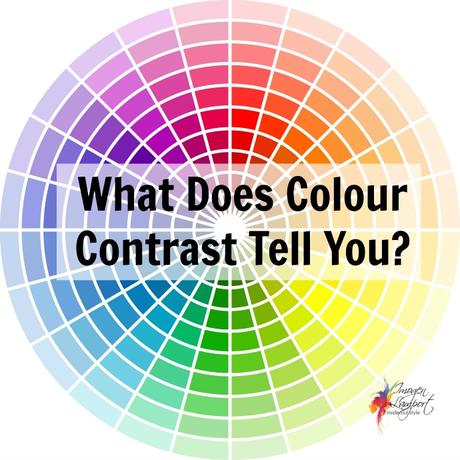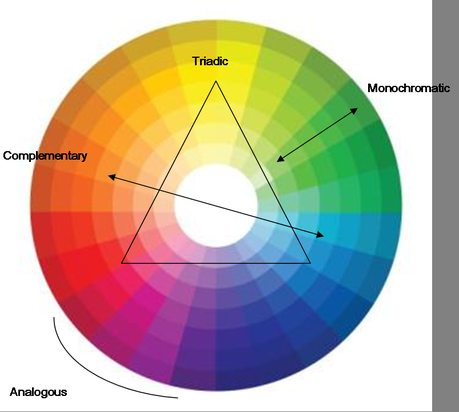
Colour contrast tells you how many colours and what kind of colours to wear at a time, in the one outfit.
Colour Contrast tells you if you should predominantly wear:
- Neutrals - and you can find out what is a neutral here and here
- Rainbow colours - which I will refer to as "colour" in this post vs neutral colours I will refer to as "neutrals"
- A combination of both neutrals and rainbow colours
- What colour relationships work best on you (as in which colours schemes flatter you - analogous, triadic, complementary etc.)
What colour contrast doesn't tell you is:
- how light or dark the colours should be
That's your Value Contrast which you can read about here.
When deciding upon your colour contrast you need to take into consideration:
- Hair colour
- Skin colour
- Eye colour
- Lip colour - only if your lips are noticeably colour - like you never need to wear lipstick because it looks like you're already wearing it, or if you always wear a dominant lipstick colour and constantly reapply
You can use my 3 Step Process for Discovering Your Ultimate Contrast to figure out what your contrast levels are.
Now, rather than thinking in the low to high way that works easily with Value Contrast. With colour contrast it's often easier to think about just how many colours to wear at one time, and what kind of colours they are (rainbow colours, neutrals or a combination) and then which colour relationships/colour schemes to work with.
The most common colour contrast schemes are:
All neutral
1. Monochromatic
(that means just one colour at a time - such as all blue - or all green, but they could be a variety of shades of green in the one outfit, but just only green)
2. Neutral plus one colour
3. 2 Neutrals plus one colour
4. Neutral plus 2 colours
- and then you start needing to think about a scheme as you are adding in 2 rainbow colours. Schemes could be analogous, triadic, complimentary, split-complementary etc.
5. 3 colours
(and again, working with a colour scheme as described above)


